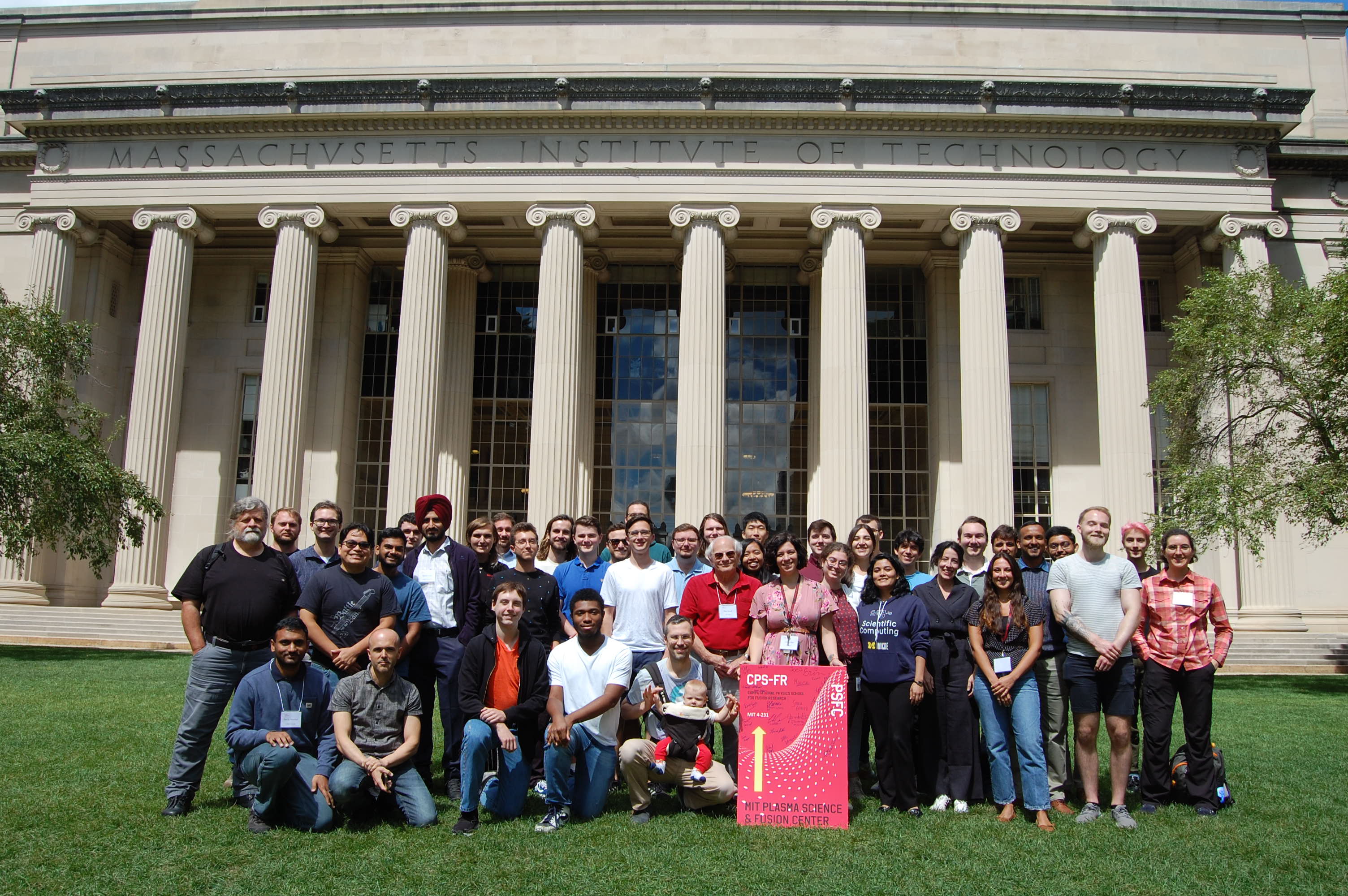PSFC hosts the 5th Computational Physics School for Fusion Research
CPS-FR reaches its fifth edition

In August, the MIT Plasma Science and Fusion Center (PSFC) successfully completed its 5th annual Computational Physics School for Fusion Research (CPS-FR 2024), marking another significant milestone in bridging computational expertise with fusion energy research. The intensive one-week program ran from August 19-24, 2024, bringing together graduate students and early-career researchers from institutions around the globe.
Since its founding in 2019 by Disruptions Team Group Leader and Principal Research Scientist Dr. Cristina Rea and Francesco Sciortino (now Co-Founder & CEO of Proxima Fusion, the school has grown into a premier educational platform that addresses a critical gap in interdisciplinary training. The program focuses on four pillars of instruction: high performance computing architectures, parallel programming, computational statistics, and machine learning, equipping participants with essential skills for modern fusion research challenges.
“As the field expands towards technology development necessary for the deployment of fusion energy on the grid, the only way to keep up with the fast pace of research and enabling solutions needed is to diversify the skill-set of the current workforce.” reflects Dr. Rea.
The 2024 edition included roughly 10% of participants coming from institutions outside the United States, representing around 20 institutions worldwide. Limited travel grants were made available for travel assistance, continuing the tradition of supporting participants who might not otherwise have the means to attend.
A highlight of the program was the poster session held on August 20th, where 14 posters were presented by CPS-FR participants, showcasing the breadth and depth of contemporary fusion research.
As in previous years, lunches and coffee breaks were provided, and CPS-FR social dinners were organized on Tuesday (8/20) and Thursday (8/22) night, fostering connections between participants and creating a collaborative learning environment.
The school’s format of lectures, guided discovery, and hands-on applications enables students to directly connect computational techniques to their own research areas. This practical approach has consistently received positive feedback from participants, who appreciate the opportunity to learn from both fellow researchers and invited experts from the fusion community.
Looking ahead, the success of CPS-FR 2025 reinforces the program’s vital role in preparing the next generation of fusion researchers. As the field continues to evolve with increasingly complex computational demands, the school’s mission of providing cross-disciplinary training becomes ever more crucial for advancing fusion energy research.
The continued growth and success of CPS-FR demonstrates the fusion community’s commitment to addressing training gaps and fostering international collaboration. With five successful editions now completed, the program has established itself as an essential resource for early-career researchers navigating the intersection of computational science and fusion physics.
Applications for future editions of CPS-FR are expected to open in Spring, continuing this important tradition of educational excellence and international scientific cooperation.
Enjoy Reading This Article?
Here are some more articles you might like to read next: